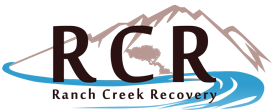For many people living with opioid addiction, dealing with feelings of excessive depression and anxiety can be a daily struggle. The problem with co-occurring disorders – like an opioid addiction occurring alongside an anxiety disorder – is trying to figure which disease originated first and which disorder is impacting you more severely.
In all honesty, all that matters is the fact that they both exist and you need qualified clinical guidance in order to address the symptoms appropriately and successfully overcome both diseases.
How Oxycodone Works
In the case of many opioid use disorders, understanding where your substance compulsion originated can be instrumental to addressing your addictive impulses and creating an individualized treatment plan to address your addiction in a safe manner.
For example, dealing with an oxycodone addiction can start innocently enough. Perhaps you received a prescription for a recommended pain medication following a medical procedure or borrowed a few pills from a friend for pain relief. Seems safe, right?
The problem with a drug like oxycodone is the manner in which it impacts your brain. It floods your body with dopamine and drives you to chase that feeling again and again. After a while, casual use of oxycodone can easily evolve into daily abuse, pushing you further and further down the road of addiction and forcing you to seek out more of the substance.
These kinds of slippery slopes have become the hallmark of the opioid epidemic raging across this country, leaving paths of destruction all around them.
Taking the time to better understand your opioid addiction and how it interacts with your anxiety disorder can work to reverse this addictive trend while also increasing your ability to effectively deal with both diseases.
Anxiety Disorders: What’s Important to Know
Most people deal with some form of anxiety at some point throughout their life, but an actual anxiety disorder is an entirely different experience.
A diagnosable anxiety disorder is an illness that can cause you to feel overly distressed, frightened and excessively uneasy for no actual reason.
This worry does not go anywhere and can end up plaguing your mind for extended amounts of time. It can impact your job and daily responsibilities, forcing you to avoid interactions with other people and driving you into a state of perpetual solitude.
A few of the more typical symptoms associated with an anxiety disorder include:
- Feeling restless and on edge
- Having difficulty concentrating
- Excessive irritability
- Experiencing sleep problems
Oxycodone and Anxiety
A number of recent studies have identified a viable connection between non-prescription use of opioids, including oxycodone, and the development of diagnosable anxiety disorders.
It is thought that habitual use of opioids like oxycodone can negatively impact neurological transmitters by inundating the brain with synthetic chemical compounds and leaving a person reeling physically and emotionally from their addiction.
Adding to this link between opioid addiction and a developed anxiety disorder include a familial history of anxiety disorders, a biological predisposition to addictive behaviors and the stressors associated with the addiction/withdrawal.
For those people struggling with an oxycodone addiction, it should come as no surprise that a narcotic as severe and addictive as oxycodone can be dangerous on multiple levels when ingested for an extended amount of time.
Common symptoms associated with an oxycodone addiction can include:
- Poor coordination
- Excessive drowsiness
- Nausea
- Shallow breathing
- Depression
- Mood swings
- Anxiety attacks
Oxycodone and Anxiety asCo-Occurring Disorders
These symptoms only name a few of the physically dangerous and debilitating symptoms associated with opioid abuse and addiction.
The fact of the matter is that oxycodone fundamentally changes the way your brain functions. These synthetic chemicals destroy the natural functionality of your mind and body, leaving you emotionally unstable and susceptible to a wide variety of mental and physical health concerns.1
Regardless of which disease came first, dealing with both ailments simultaneously is essential to gaining ground on either of them. That is why it is so important to find a treatment facility capable of addressing both disorders effectively through a clinically comprehensive individualized treatment plan focused on your specific needs and desired goals.
Being able to identify that a problem actually exists is typically the first step in addressing any addiction, and asking for help is the quickest way to get started on your recovery journey in a safe and collaborative way.
Life-Changing Co-Occurring Addiction Treatment at Ranch Creek Recovery
Regardless of where your addiction has landed you, you can stop using and get your entire life
back on track. At Ranch Creek Recovery, your precise recovery needs are our main priority; your successful recovery and sober re-entry into society is our utmost mission.
At our holistic recovery center, our opioid treatment program delivers all-encompassing methodologies of medical and physical treatment, psychology, holistic and experiential therapies, and preparation to forge the drug free future you desire. Additionally, our dual diagnosis program treats you, the entire person, and not just the addiction or just the mental health issue.
Learn more about Ranch Creek Recovery, including our opioid addiction treatment program and dual diagnosis treatment.
Have questions? We’re here to help in any way we can. Contact us today.
Resources:
1 Cambridge University Press. Mood and Anxiety Disorders. Accessed May 22, 2019. https://www.cambridge.org/core/journals/psychological-medicine/article/mood-and-anxiety-disorders-and-their-association-with-nonmedical-prescription-opioid-use-and-prescription-opioiduse-disorder-longitudinal-evidence-from-the-national-epidemiologic-study-on-alcohol-and-related-conditions/2B40E54FF1FD3698742D565399B64F20.













